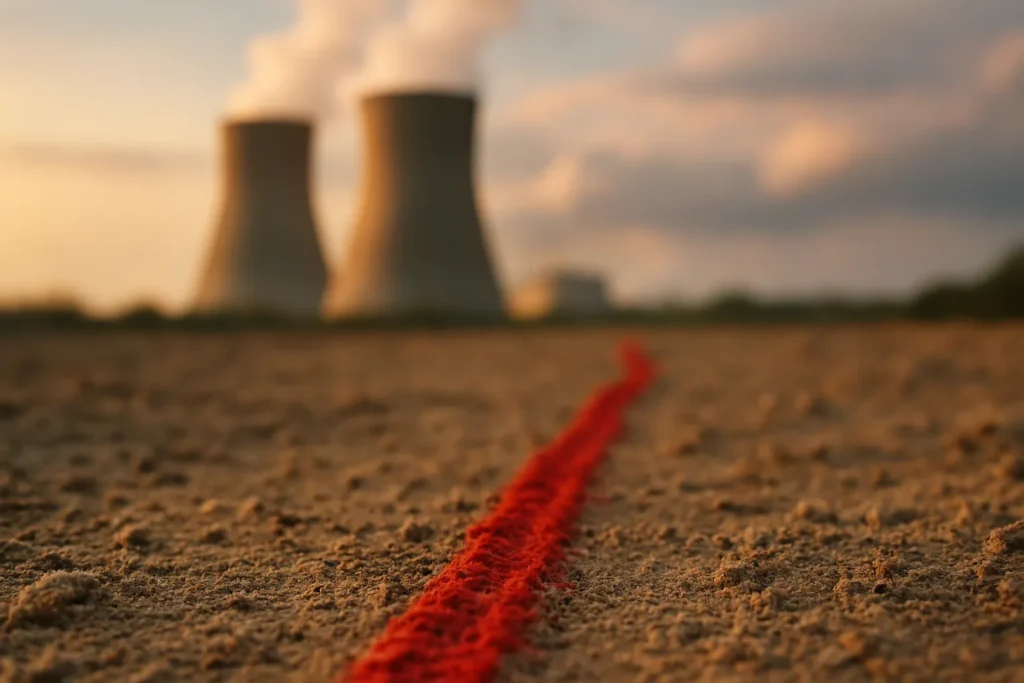The Stubborn Stand-Off: Iran’s Unyielding Nuclear Position
The stage is set once again in the Persian Gulf, where the fate of nuclear diplomacy hangs in the balance. On the eve of indirect negotiations with the United States in Oman, Iranian Foreign Minister Abbas Araqchi delivered a resounding message: Iran will never retreat from its nuclear rights. For progressives who watched in dismay as the Trump administration unraveled a hard-won nuclear deal, these latest developments rekindle memories of brinkmanship, suspicion, and endless cycles of escalation.
Araqchi’s pronouncement found resonance not only among government loyalists but, increasingly, among ordinary Iranians. After years of crushing sanctions, economic whiplash, and diplomatic isolation, the concept of a sovereign right to peaceful nuclear energy carries powerful emotional weight. According to a Pew Research Center report, a majority of Iranians now perceive Western pressure as an attempt to deny them technological and economic progress under the guise of security.
This time, the foreign minister’s message is unmistakable — Iran wants the world to know that uranium enrichment and civilian nuclear research are lines it refuses to erase, even as Western powers brandish threats and double standards. Yet these lines are not merely rhetorical. Since Washington withdrew from the Joint Comprehensive Plan of Action (JCPOA) in 2018, Iran has methodically increased its stockpiles of enriched uranium and reduced access for international inspectors. The progression is neither accidental nor uncalculated; it’s a deliberate assertion of agency against what Tehran perceives as global hypocrisy.
Regional Chessboard: Diplomacy, Trust, and the Shadow of War
Scratch beneath the headlines and another story emerges. Far from the old image of Iran standing alone against the world, Araqchi has been quietly rallying support across the Middle East. Recent visits to Saudi Arabia and Qatar, previously regional adversaries, reveal a shift toward regional consensus-building—a strategy aimed at countering isolation and projecting Iran as a responsible stakeholder, not a rogue actor.
A closer look reveals significant movement. The Saudi-Iran detente, brokered in part by Chinese diplomacy, has diffused years of mutual hostility. In practice, improved relations with Gulf neighbors offer Iran invaluable leverage at the negotiating table. Araqchi, referencing these regional overtures, underscored that, “Any potential agreement with Washington must take into account the interests and concerns of countries in the region.” This isn’t just posturing; it’s a recognition that non-Western voices are crucial to a sustainable peace.
Still, the United States, under both former President Trump and the current Biden administration, has been reluctant to fully abandon the playbook of maximum pressure. Instead, Washington’s envoys repeat old demands—up to and including the dismantling of Iranian enrichment facilities. According to Harvard’s Belfer Center, such absolutist positions have consistently failed, often fueling the very intransigence they aim to extinguish. So, what happens when negotiations default to rigid, all-or-nothing ultimatums?
“Progress in the negotiations will require further deliberation and cautious review, especially as both sides move closer to addressing core issues, indicating the complexity and sensitivity of the talks.”
This delicate moment recalls the complexities of the Cold War, when arms deals demanded unflinching resolve, mutual verification, and a readiness to admit that coexistence, not capitulation, was the only sane path forward. As one veteran Middle East analyst, Robin Wright, has observed, “Lasting agreements require acknowledging national dignity on both sides of the table.”
Narratives, Double Standards, and the Path Forward
It’s no secret that suspicions run deep on both sides. Western officials point to Iran’s secrecy and expansion of enrichment as proof of malevolent intent. Iranians counter that countries like Israel, never signatories to the Non-Proliferation Treaty, face no similar scrutiny despite their acknowledged nuclear capabilities. The international community is left balancing on a fragile tightrope: ensuring nonproliferation without sanctioning inequality or fueling regional arms races. As seasoned negotiator Wendy Sherman once noted, “Diplomacy thrives on mutual respect and realistic expectations—not humiliation and maximalist demands.”
This nuance is often lost on hardliners in Washington and Tehran alike. Hawks in both capitals feed off each other’s distrust: Each missile test and each punitive sanction emboldens the most rigid elements on the other side. History teaches, however, that progress emerges when pragmatists seize the initiative. The 2015 JCPOA provided a roadmap for verification and gradual trust-building. Rolling it back has not made the world safer; indeed, according to the International Atomic Energy Agency, Iran’s nuclear advances and regional insecurity have only accelerated since the deal’s collapse.
Critics of the right’s approach would do well to remember the tragic lessons of Iraq two decades ago: maximalist interventions based on worst-case assumptions seldom yield peace or security. The alternative requires patience, accountability, and a commitment to treating all nations—even adversaries—as agents with legitimate interests. Enduring peace—whether in the Middle East or beyond—demands empathy and vision, not just sanctions and saber-rattling.
As nuclear talks resume in Oman, the world watches with a mixture of hope and dread. Will diplomats choose pragmatism over posturing? Or will the coming years bring only more escalation, with ordinary people paying the price for political theatrics? One thing is clear: Without a return to genuine dialogue and fair compromise, the prospects for lasting stability will remain elusive—not only for Iran and the United States but for the many caught in the crossfire of history.

